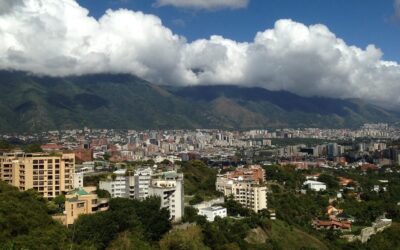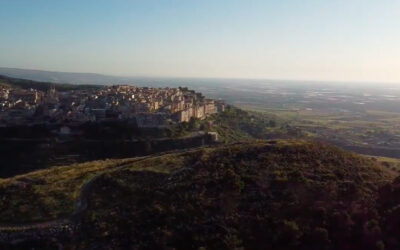 “Meditations” (Μελέτες) (1959) is the first published collection of meditations by Chiara Lubich. Now Greek has been added to the long list of translations of that book and “Knowing How to Lose”, (Μάθε να χάνεις), a book on Mary at the foot of the Cross. In his preface to the books, Patriarch Bartholemew writes: “We hail the publication of these books, which coinicides with the 50th anniversary of the encounter between Blessed Pope Paul VI and Athenagoras I in Jerusalem, and we hope that Meditations may become a favourite that will bring benefit to all who seek the path of love and peace in today’s world. . .” I personally knew the memorable founder of the Focolare Movement for over fifty years when she had been invited by our predecessor, the unforgettable Patriarch Athenagoras, and I followed closely her sincere efforts for unity and restoration of full communion between the ancient Churches and the new Rome, in the context of the dialogue of love. . . ” Chiara’s love for the Orthodox Church is well known: from 1967 to 1972 she had 25 audiences with Patriarch Athenagoras, a relationship that continued with Patriarch Demetrios and the current Bartholemew I.
“Meditations” (Μελέτες) (1959) is the first published collection of meditations by Chiara Lubich. Now Greek has been added to the long list of translations of that book and “Knowing How to Lose”, (Μάθε να χάνεις), a book on Mary at the foot of the Cross. In his preface to the books, Patriarch Bartholemew writes: “We hail the publication of these books, which coinicides with the 50th anniversary of the encounter between Blessed Pope Paul VI and Athenagoras I in Jerusalem, and we hope that Meditations may become a favourite that will bring benefit to all who seek the path of love and peace in today’s world. . .” I personally knew the memorable founder of the Focolare Movement for over fifty years when she had been invited by our predecessor, the unforgettable Patriarch Athenagoras, and I followed closely her sincere efforts for unity and restoration of full communion between the ancient Churches and the new Rome, in the context of the dialogue of love. . . ” Chiara’s love for the Orthodox Church is well known: from 1967 to 1972 she had 25 audiences with Patriarch Athenagoras, a relationship that continued with Patriarch Demetrios and the current Bartholemew I.  In Thessaloniki and Athens, Greece, two events were held to make Chiara Lubich more known in the Orthodox Church and in the Roman Catholic Church in those cities. It was significant that the Orthodox Metropolitan Chrisostomos of Messinia, in charge of relations with the Catholic Church in Greece, was sitting at the same table as member of the bi-lateral theological commission, Jesuit Father Kontidis who saw to the publication of the book, Dimitra Koukoura Orthodox professor of Homeletics, and Florence Gillet, theologian from the Chiara Lubich Centre. Nikos Papaxristou, an Orthodox journalist, moderated the presentations with a bit of autobiographical detail: “The first time I heard of the Movement was from Patriarch Bartholemew.” Universality, “femininity that is of Mary,” spiritual depth, ecclesial and social renewal from the charism of unity were some of the topics discussed. Metropolitan Chrisostomos affirmed: “There is a prophecy in Chiara that has given a new start to the age of ecumenism.” “The Ideal of Chiara is at the service of humanity,” he continued, and “is an examplary living spirituality that appeals especially but not only to the laity, opening a path of faith for so many people. . . ” Cipriot, Lina Mikelliddou and Greek Orthodox Anna Kuvala, from the Focolare Movment also gave their testimony: “Knowing this Ideal,” Lina said, “my life changed: every person became a candidate for unity.” Among the attendees in Thessaloniki, Archimendrite Ignathios, representing the city’s Metropolitan Nnikiforos, Abbot of the Orthodox Monastary of Vlatadon. Also present were several professors from diverse faculties of the Aristotelean University of the city, including Dr. Vassiliadis, Deacon of the Faculty of Theology. Bishop of Corfu-Zante, Bishop Spiteris who was unable to attend, sent a message. Also in Athens: several personalities from the Orthodox Church: Father Thomas, Vicar and representative of Archbishop Ieronimo, Metropolitan of Syros, Polykantriotis, Archimendrite Sotiriadis responsible of Diakonia (for charitable works) of the Holy Orthodox Synod (episcopal conference). From the Catholic Church: Apostolic Nunzio Bishop Adams, incumbent Bishop Foskolos, and Don Rossolatos, newly nominated Bishop of Athens. Another presentation of the two books will take place on October 31, 2014, in Nicosia – Cyprus.
In Thessaloniki and Athens, Greece, two events were held to make Chiara Lubich more known in the Orthodox Church and in the Roman Catholic Church in those cities. It was significant that the Orthodox Metropolitan Chrisostomos of Messinia, in charge of relations with the Catholic Church in Greece, was sitting at the same table as member of the bi-lateral theological commission, Jesuit Father Kontidis who saw to the publication of the book, Dimitra Koukoura Orthodox professor of Homeletics, and Florence Gillet, theologian from the Chiara Lubich Centre. Nikos Papaxristou, an Orthodox journalist, moderated the presentations with a bit of autobiographical detail: “The first time I heard of the Movement was from Patriarch Bartholemew.” Universality, “femininity that is of Mary,” spiritual depth, ecclesial and social renewal from the charism of unity were some of the topics discussed. Metropolitan Chrisostomos affirmed: “There is a prophecy in Chiara that has given a new start to the age of ecumenism.” “The Ideal of Chiara is at the service of humanity,” he continued, and “is an examplary living spirituality that appeals especially but not only to the laity, opening a path of faith for so many people. . . ” Cipriot, Lina Mikelliddou and Greek Orthodox Anna Kuvala, from the Focolare Movment also gave their testimony: “Knowing this Ideal,” Lina said, “my life changed: every person became a candidate for unity.” Among the attendees in Thessaloniki, Archimendrite Ignathios, representing the city’s Metropolitan Nnikiforos, Abbot of the Orthodox Monastary of Vlatadon. Also present were several professors from diverse faculties of the Aristotelean University of the city, including Dr. Vassiliadis, Deacon of the Faculty of Theology. Bishop of Corfu-Zante, Bishop Spiteris who was unable to attend, sent a message. Also in Athens: several personalities from the Orthodox Church: Father Thomas, Vicar and representative of Archbishop Ieronimo, Metropolitan of Syros, Polykantriotis, Archimendrite Sotiriadis responsible of Diakonia (for charitable works) of the Holy Orthodox Synod (episcopal conference). From the Catholic Church: Apostolic Nunzio Bishop Adams, incumbent Bishop Foskolos, and Don Rossolatos, newly nominated Bishop of Athens. Another presentation of the two books will take place on October 31, 2014, in Nicosia – Cyprus.
Communicate Joy!
Communicate Joy!




0 Comments